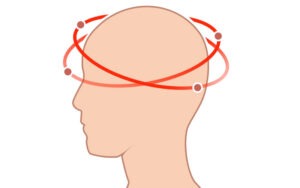Headache


Dizziness
Vertigo is a subjective feeling of movement and rotation of objects and space, uncertainty when walking and short-term impaired coordination in space. Vertigo is not a separate disease. It is a symptom that can occur as a result of many possible types of deviations in the body. In 20% of cases, dizziness will have not one, but several causes.
Why does the head spin
There are many causes that cause unpleasant sensations, which is why different doctors will treat the symptoms.
Deviations cause disorders
in the work of
the inner ear
the brain
the neural connections between the inner ear and the brain
the cardiovascular system
.
Some medications that cause disorders of the vestibular system can cause dizziness.
Systemic dizziness (vertigo) is associated with diseases of the central nervous system.
As a rule, the duration of the attack in this case is no more than 6 hours.
Non-systemic dizziness is longer.
These include: intoxication, nausea, blurred vision, short-term darkening of consciousness, etc.
Another reason is the disruption of the full blood supply to the brain.
The head can spin in the case of osteochondrosis or hernia of the neck, since as a result of muscle spasm in the neck, the brain's nutrition is disrupted.
Dizziness is also caused by acute circulatory disorders after stroke, thrombosis, ischemia.
Dizziness can be accompanied by nausea and even vomiting, and can be caused by head injuries or other non-traumatic conditions, such as cardiovascular problems.
Regular attacks of dizziness when standing up significantly worsen the quality of life, can lead to injury due to falls. The condition is characterized by loss of balance, tilting of the body to one side, a feeling of tension and pressure in the head, unsteady gait and loss of confidence, with the risk of falling. Symptoms may become more pronounced when changing body position or turning the head.
Pathological dizziness also occurs in:
migraine
brain infection
epilepsy
multiple sclerosis
stroke
hypertensive disease
thrombosis
There are also physiological reasons for the “instability of the body and surrounding objects”. For example, hyperventilation - rapid breathing during a panic attack, or low iron levels during a diet.
Each case must be considered individually and the root of the problem that causes the unpleasant symptom should be sought.
What to do in case of dizziness: our doctors will help you
Epistles that “take” the ground from under a person’s feet significantly reduce working capacity and quality of life. Therefore, it is important to conduct a quality diagnosis and determine the primary cause that caused vertigo.
At the same time, the diagnosis of the disease is significantly complicated by the subjective nature of the patients’ feelings.
Healthy lifestyle for women, girls and children
Contact
leave your Contact info and we will contact you
aroxjvarqagic@gmail.com
